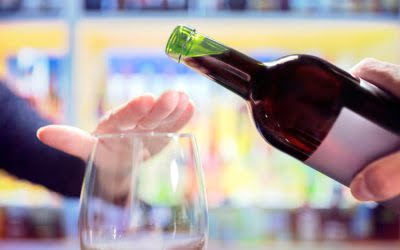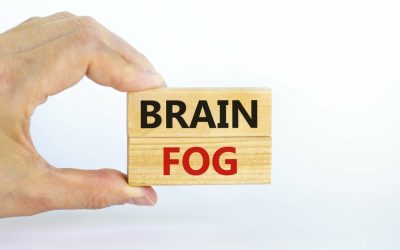In addition, acetaldehyde also acts on Ih, which has been previously shown to be facilitated by ethanol (Brodie and Appel, 1998; Okamoto et al., 2006). Likewise, pharmacological blockade of these ion channels prevented acetaldehyde actions on dopamine neuronal firing activity, although at this stage actions of other ion channels accounting for the duration of the after-hyperpolarization period (i.e. AHP) cannot be ruled out. A series of experiments in outbred rats show that the dopamine stabilizer OSU6162 attenuates several alcohol‐mediated behaviours including voluntary alcohol intake, alcohol withdrawal symptoms and cue/priming‐induced reinstatement of alcohol seeking in long‐term drinking rats 196. Furthermore, OSU6162 blunted alcohol‐induced dopamine output in the NAc of alcohol‐naïve rats 196, indicating that OSU6162 has the ability to attenuate the rewarding effects of alcohol. In contrast, a more recent microdialysis study conducted in long‐term drinking rats, showed that OSU6162, compared to vehicle‐pretreatment, had no significant effect on the alcohol‐induced dopamine peak 29. The contrasting microdialysis results in alcohol‐drinking versus alcohol‐naïve rats highlight OSU6162´s ability to modulate the dopamine output dependent on the prevailing dopaminergic tone.
Recent Advances in Drug Addiction Research and Clinical Applications

Recovery times vary, but it can take several months to years for the brain to fully restore dopamine balance after prolonged alcohol use. Foods rich in tyrosine, such as bananas, almonds, lean proteins, and dairy products, can help boost dopamine production in the brain. Common signs include fatigue, lack of motivation, mood swings, and difficulty experiencing pleasure from everyday activities. While alcohol can severely disrupt dopamine regulation, recovery is possible with the right strategies.
What are some healthy alternatives to drinking alcohol?

Social engagement and meaningful activities, such as creative pursuits or goal-setting, further stimulate the brain’s natural dopamine pathways, promoting long-term recovery and overall well-being. The “brake” system in the brain is responsible for ensuring that every day, normally pleasurable experiences do not turn into addictive behaviors. Without this specific neurotransmitter, dopamine levels remain Twelve-step program elevated as long as alcohol continues to enter the person’s body.
What role does dopamine play in alcohol addiction?
- It’s the chemical that drives us to seek food, sex and exercise and other activities that are crucial to our well-being and survival.
- This increase was measured 2h after exposure to the stress, it peaked at 24h, and it persisted for approximately 2 days (Marinelli, 2007).
- We provide the following recommendations for future studies aiming to examine sex differences in the effects of alcohol use on brain dopamine measures.
- Subjective mood changes, heart rate, and blood-alcohol levels were monitored throughout the procedure.
- Individuals with alcohol dependence often struggle with these mental health issues due to impaired dopamine regulation.
Various neurotransmitters have been implicated in alcohol addiction due to their imbalance in the brain, which could be either due to their excess activity or inhibition. This review paper aims to consolidate and to summarize some of the recent papers which have been published in this regard. The review paper will give an overview of the neurobiology of alcohol addiction, followed by detailed reviews of some of the recent papers published in the context of the genetics of alcohol addiction. Furthermore, the author hopes that the present text will be found useful to novices and experts alike does alcohol increase dopamine in the field of neurotransmitters in alcoholism.

- Investigations of the underlying dopaminergic mechanisms involved during the development and maintenance of alcohol dependence could identify novel targets.
- Research shows that caffeine increases the release of dopamine in the brain (26-27).
- Researchers have found that if you are depressed, you likely have lower levels of folate circulating in your blood, and people with low blood folate are at greater risk for developing depression.
Chronic alcohol use dysregulates dopamine systems over time, leading to maladaptive conditioning of alcohol’s rewarding effects 1. Preclinical studies show that acute alcohol administration increases dopamine synthesis, the firing rate of dopamine neurons in the ventral https://edu.bijaja.com.pk/best-addiction-recovery-tattoo-ideas-3/ tegmental area, and dopamine release in the nucleus accumbens 1, 7, 11, 12. Preclinical studies using alcohol-preferring rats showed increased dopamine release in the nigrostriatal and mesolimbic pathways following voluntary alcohol consumption 25. Furthermore, lines of selectively bred alcohol-preferring rats (P, preferring; HAD, high alcohol-drinking) showed lower dopamine levels in the nucleus accumbens relative to non-alcohol-preferring and low alcohol-drinking rats 26. Studies have found altered dopaminergic systems in alcohol-drinking subjects relative to controls, however, these studies were either predominately conducted in male subjects or did not investigate the influence of sex 33, 34. Identifying relationships between dopamine and alcohol use that contribute to sex differences in AUD phenotypes is critical to informing individualized treatment approaches.
